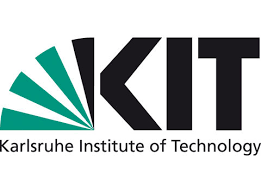Karlsruhe Institute of Technology: Battery research: start of the first fully automated laboratory
Build batteries around the clock, analyze thousands of interfaces, evaluate the results autonomously with the help of artificial intelligence (AI) and then plan the next experiment right away: A new facility at the POLiS Cluster of Excellence handles material development fully automatically and digitally. The autonomous research laboratory was created in a cooperation between the Karlsruhe Institute of Technology (KIT), the University of Ulm and the Helmholtz Institute Ulm (HIU) and has now gone into operation. The Baden-Württemberg Minister of Science, Theresia Bauer, was present at the start.
New types of powerful and sustainable batteries are needed for the transport and energy transition. This represents a major challenge, because it takes decades from the idea to the finished product with current methods. With a now completed high-tech system at POLiS, things should go much faster in the future. The lighthouse project was developed in the POLiS Cluster of Excellence, in which KIT works together with Ulm University on the batteries of the future. “With the funding of this new material development platform, a research infrastructure that is unique in the world has been created. We hope for a significant boost in research into energy storage, which is essential when converting our energy system and our mobility.
World’s first fully integrated platform for accelerating research into electrochemical energy storage
Helge Stein, tenure-track professor at KIT and spokesman for the POLiS research area, explains the advantages of the system: “We are now able to synthesize and assemble batteries and their individual components automatically, initiate a measurement and evaluate them fully automatically. Based on the available data, the AI-supported system can even decide which experiment should be carried out next.” With his research group, Stein has developed the underlying combinatorial material synthesis, high-throughput characterization and data mining techniques with the help of AI methods in of test evaluation and planning.
New paradigm for battery material development
Battery research is characterized by the search for the ideal combination of materials, their composition and process engineering. Testing all possible variations with all materials would, however, take thousands of years using traditional methods. “Our system can test several hundred such variations a day. This roughly corresponds to the average life’s work of a researcher,” says Stein. In addition to the acceleration through automation, the algorithms and AI can be used to achieve an additional optimization that is ten times faster, so that promising battery concepts can be brought to market even faster and more cost-effectively.
The new research facility is embedded in a European framework: The data collected from all areas of the battery development cycle is shared with 34 institutions from 15 countries in the BIG-MAP project of the European BATTERY2030+ research initiative. “The fully automated laboratory will not only enable us and our European partners to develop components for new batteries much more quickly. It will also ensure that batteries can be manufactured at such low costs that it will be even more attractive in the future to store electricity, for example from the sun and wind, in batteries,” says Professor Maximilian Fichtner, Executive Director of the HIU and spokesman for POLiS .
In the POLiS (Post Lithium Storage) Cluster of Excellence, scientists are conducting battery research on future batteries that are more powerful, more reliable, more sustainable and more environmentally friendly than current lithium-ion batteries. Such alternative technologies are needed, especially with regard to the energy transition and electromobility. To this end, the Karlsruhe Institute of Technology (KIT), the University of Ulm and the associated partners Center for Solar Energy and Hydrogen Research Baden-Württemberg (ZSW) and the University of Gießen are pooling their expertise in the Cluster of Excellence. The cluster was acquired at the end of 2018 as part of the highly competitive excellence strategy of the federal and state governments and is endowed with around seven million euros per year for an initial period of seven years.

